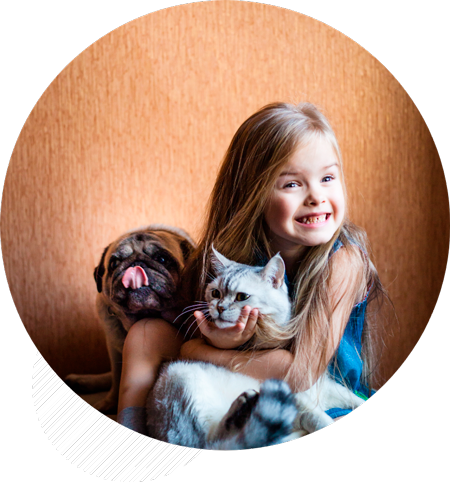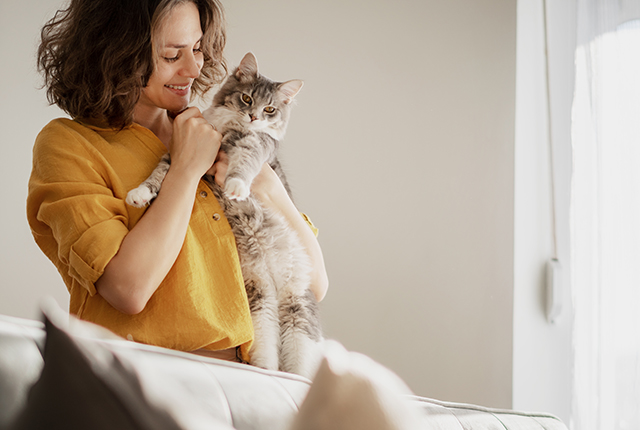Essential nutrients for better neurological development of puppies and kittens
The contribution of certain essential fatty acids of the omega 3 family in the nutrition of pregnant or lactating females and of puppies and kittens in their first months of life favors the neurological and visual development and reinforces natural defenses. Natural sources of these nutrients. Importance of including DHA in the formulas of balanced food for growing dogs and cats.
The physical and neurological development of puppies and kittens is influenced by several factors: genetic, environmental and nutritional, among others. In recent years, the relationship between nutrition and health, known as nutraceuticals, has attracted the attention of many scientists whose investigations allowed to verify that the addition of certain natural components in the diet of dogs and cats favors the functioning of different organs and systems and strengthens their natural defenses.
One of these lines of knowledge is related to the nutraceutical advantages of the inclusion of essential fatty acids of the omega 3 family in the most adequate development of the central nervous system in growing animals, improving their cognitive and psychomotor functions. At the same time, these natural nutrients favor the development of the sense of sight and even increase the immune response against the challenge with vaccines.
NAtural sources of DHA
The presence of DHA in the body of certain cold-water fish is one of many examples of bioconcentration of an element through a food chain. At the base of this chain are the phytoplankton components that synthesize DHA very efficiently. When feeding on them, these fish and other marine animals incorporate and concentrate it in their cellular structures, although it is not ruled out that they also have the ability to biosynthesize it from simpler precursors.
DHA in the organism
This essential nutrient is found in practically all tissues of the mammalian body, which is indicative of its importance. But above all, it is very abundant in the brain where 80% of the total concentration of DHA in the body is found. Other cells where there is a large amount of this fatty acid are the cones and rods of the retina and the gonads. It can also be found in blood plasma and in the membrane of erythrocytes, which is why these cells are considered good markers of the nutritional status of an individual in DHA.
Puppies and kittens obtain this nutrient naturally from breast milk, so it is important that the lactating female also has a good supply of this nutrient in her diet. But after weaning, the brains of puppies and kittens still continue to develop, acquiring 70% of their adult brain mass at the sixth week of life and reaching 90% only at 3 months of age.
Essential fatty acids play a very important role in the proper formation of the brain and the retina in puppies and kittens during the last third of their gestation and in the first months of life after birth. DHA supplementation of mothers’ diets has been shown to improve the cognitive development of their young. There are scientific works where it is concluded that puppies that receive this essential nutrient during the last months of development in the maternal uterus and after birth, have a better learning capacity, greater memory and a sharper vision compared to other canine puppies of the same breed but not supplemented with this fatty acid. At the same time, these animals, previously vaccinated against rabies at 16 weeks of age, they had significantly higher antibody titers against this virus than puppies from litters without dietary intake of this nutrient.
DHA in balanced food
According to AAFCO (Association of American Feed Control Officials), a leading US body in animal nutrition, there is so far no specific minimum requirement of DHA for the diet of dogs or cats.
However, the results of different scientific tests show the importance of feeding puppies and kittens with balanced foods that provide this essential fatty acid. Similarly, females in the last third of gestation and during their lactation should also receive a balanced food supplemented with this nutrient so that they can transfer it with milk to their young.
Improving cognitive development and learning capacity during the growth stage in dogs and cats helps to achieve better results during the training process of these animals. This contributes to a correct socialization of the adult pet, which will present fewer behavioral problems and a more balanced character to live without conflicts in the family environment of a home.



